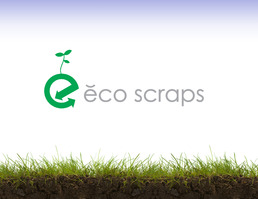 How did Paper Feet start?
How did Paper Feet start?
I had just graduated from The University of Michigan with a nuro-science degree but really had always been interested in entrepreneurship from my early days of mowing lawns and selling on eBay. My love for the outdoors was the real driver behind the creation of Paper Feet. Paper Feet started in class as I tried to come up with a concept that brought nuro-science and art together to make paper thin shoes.
I originally used the envelopes from my eBay business to make the shoes, which at that time literally looked like paper. The envelopes were a thin paper and living by water at the time I would cross the street and the shoes would fall apart. I wanted it to work better outdoors so I figured I would have to come up with something else for the shoes all together. There were at least 20-30 versions of the shoes as they evolved into the ones today that work in all conditions. Today’s shoes use billboard vinyl which I learned about from a contractor at the time who was quoting me on ways to repair my trailer’s roof.
We then sold the 1st pairs at cost and called them a beta release which we innovated on and used the sales to fund the next version. We also tracked everything about our buyers from their lifestyle to why they were buying our shoes. Most people were happy to answer the questions and it was a great research tool for us to better understand our customers and build a product they would love.
What has your experience with Sparkseed been like?
I heard about it through the Starting Bloc Institute of Social Innovation in February. I was immediately intrigued so I filled out the application and submitted it.
I can’t speak highly enough of the whole process. I had pitched several different groups but Sparkseed was our 1st success of hearing “that’s a great idea lets do it.” They connected us with an advisor and it’s that network that I think is the best part about the Sparkseed program.
What has been the biggest lesson you have learned?
One day I am trying to figure out how to get velcro to stick to a shoe and the next I am trying to create a balance sheet and run financial numbers. You have to see the big picture ideas and break them down into manageable objectives that you can execute on.
What is social entrepreneurship?
If you’re doing something that has a social benefit beyond making a profit in the business and involving all of the stakeholders (not just shareholders). It is a holistic approach to doing business not just making money. Social business is for impact and that is the most important part.
Jimmy Tomczak founder of Paper Feet
 How did Eco Scraps start?
How did Eco Scraps start?
I was a BYU student studying English but left after the 1st semester to work on my business. My idea actaully started when I was at an all you can eat buffet about a year ago and I threw out a lot of my french toast out. I noticed a lot of people were throwing a lot of their food out too and I starting thinking about how to capitalize on this.
It got me thinking about when I had lived with a family in Puerto Rico who had no garbage disposal. They collected everything in a compost for their garden. I had done some gardening and knew about composting but I started working with a chemist at BYU to put it all together. We came up with a process to take produce waste and turn it into a highly nutritious fertilizer that is %100 organic and has more nutrient value than chemical or manure fertilizers.
Eco Scraps now collects produce waste from wholesale produce providers and composts it. We package it and sell it back to our suppliers, garden centers, nurseries and others.
What has been your experience with Sparkseed?
At BYU, which has a social venture competition, one of the MBA students was familiar with the Sparkseed program. I was interested in getting seed money where ever I could get it which was what my initial interest in Sparkseed was for. However since joining the program it has been the mentoring that has helped me the most in building and expanding the business.
What has been the biggest lesson you have learned?
Bring the product to market as quickly as possible and then make changes. Don’t wait, as soon as you can start selling do it.
What has been your biggest challenge?
Scaling before we resolve all of our bottlenecks. There is a major difference between the paper plan in the boardroom and actually doing it. In theory we have it all perfect but there are actually many bottlenecks.
Define social entrepreneurship:
Innovating a solution to any social or environmental problem that is sustainable so it is profitable but preserves and protects environments and takes care of all the people, all stakeholders not just shareholders. True social entrepreneurship does all 3.
Daniel Blake founder of Eco Scraps
 How did Elecar start?
How did Elecar start?
I was studying urban studies at Brown University and it had me thinking about the destruction that oil is causing in so many ways. Why had electric cars not happened and what were the barriers to them? All of the major car companies are pouring tons of money into these programs like Nissan which has spent over 10billion and is coming out with their first mass produced electric car. So what was wrong?
I realized it had not worked in the past because of a lack of infrastructure to charge all of the cars. There is a huge scramble to figure out how to do this. The car companies are not making the chargers and neither are the oil people so it is a 3rd party business opportunity.
I set out to design the best possible charger that would solve the issues that existed in the past and make it inexpensive so it can scale. In coming years everyone will have one in their home, parking garages and malls.
What has been your experience with Sparkseed?
Sparkseed had a strong presence at Brown where a couple of my friends entered into the program a year ago. They had their competition which I entered and I was picked as one of the innovators. The great thing is the network of people who are involved. I have met or been connected to people all over the country in places like San Francisco, NYC, LA and more.
What has been the biggest lesson you have learned?
Everyone will tell you it won’t work. A lot of bigger players have more money and will disregard what you have to say. Take it all with a grain of salt and build it anyway.
What has been your biggest challenge?
Financing and learning the VC game. Just trying to find those meetings and get the foot in the door. Talking to the right people and making the right intros is tough so make sure you have all your materials ready to go when it happens.
Define social entrepreneurship:
An enterprise which takes into account social factors and environmental factors and equates those into the same level of importance as your bottom line.
Andrew Antar founder of Elecar







